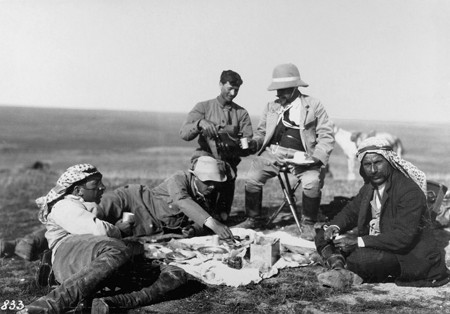Judith Raum
16 Apr - 04 Jun 2011
JUDITH RAUM
Harmless Entrepreneurs
16 April – 4 June 2011
Since 2009, Judith Raum has engaged in artistic research dealing with the effects of German financial imperialism on the cultural relations between the German and the Ottoman Empire during the early 20th century.
For the opening of her solo-show at uqbar Judith Raum will use a lecture performance to follow a few narrative threads from inside the topic area. She will describe ways in which the profitoriented expansion of the German Reich into Anatolia functioned, and she will point to different modes of production interconnecting with the expansion, and colliding with it to some extent. The lecture performance will bring together carrier structures, narrators’ voices, archival material and objects produced by the artist herself to form a provisional installation blurring factual representation and fiction and remaining accessible throughout the duration of the exhibition.
In 1888, the Ottoman Empire commissioned a corporation founded by the Deutsche Bank and German construction firms in order to construct the Anatolian Railway – a railway crossing present-day Turkey, which was intended eventually to reach the oilfields around Baghdad.
The title of the exhibition harmless entrepreneurs refers to a statement by Georg von Siemens, chief executive at Deutsche Bank during the initial years of the Baghdad Railway project. In a speech to some of the bank’s shareholders, he described the railway and the German companies involved in it as a “Club of the harmless”, assuming that only low profits could be expected from the construction project. The Great Powers Great Britain, France and Russia did not share his opinion and saw the Baghdad-railway as a competition and threat to the power relations in the Middle East. The railway became one of the many reasons finally leading up to the breakout of the First World War.
Judith Raum collected image material and correspondence from archives in Germany, England and Turkey, which document the diffusion of capital, the language and image policy connected with German semi-colonial efforts in Anatolia. However, the engineers’ and entrepreneurs’ panoramic view onto the landscape is accompanied by moments of improvisation and provisional solutions, which sporadically show in the files and archival photographs.
In her lecture performance, Judith Raum traces the official story of the economic and infrastructural penetration of a country only to disturb it with past and present moments of a different production, among them objects made in the course of the research process. She combines abstract considerations, objective facts and diary-like reports of visits to museums and archives together with projected image material and a sculptural action in order to find a narrative form for the description of modes of action that defy the grasp of colonial control.
uqbar
Harmless Entrepreneurs
16 April – 4 June 2011
Since 2009, Judith Raum has engaged in artistic research dealing with the effects of German financial imperialism on the cultural relations between the German and the Ottoman Empire during the early 20th century.
For the opening of her solo-show at uqbar Judith Raum will use a lecture performance to follow a few narrative threads from inside the topic area. She will describe ways in which the profitoriented expansion of the German Reich into Anatolia functioned, and she will point to different modes of production interconnecting with the expansion, and colliding with it to some extent. The lecture performance will bring together carrier structures, narrators’ voices, archival material and objects produced by the artist herself to form a provisional installation blurring factual representation and fiction and remaining accessible throughout the duration of the exhibition.
In 1888, the Ottoman Empire commissioned a corporation founded by the Deutsche Bank and German construction firms in order to construct the Anatolian Railway – a railway crossing present-day Turkey, which was intended eventually to reach the oilfields around Baghdad.
The title of the exhibition harmless entrepreneurs refers to a statement by Georg von Siemens, chief executive at Deutsche Bank during the initial years of the Baghdad Railway project. In a speech to some of the bank’s shareholders, he described the railway and the German companies involved in it as a “Club of the harmless”, assuming that only low profits could be expected from the construction project. The Great Powers Great Britain, France and Russia did not share his opinion and saw the Baghdad-railway as a competition and threat to the power relations in the Middle East. The railway became one of the many reasons finally leading up to the breakout of the First World War.
Judith Raum collected image material and correspondence from archives in Germany, England and Turkey, which document the diffusion of capital, the language and image policy connected with German semi-colonial efforts in Anatolia. However, the engineers’ and entrepreneurs’ panoramic view onto the landscape is accompanied by moments of improvisation and provisional solutions, which sporadically show in the files and archival photographs.
In her lecture performance, Judith Raum traces the official story of the economic and infrastructural penetration of a country only to disturb it with past and present moments of a different production, among them objects made in the course of the research process. She combines abstract considerations, objective facts and diary-like reports of visits to museums and archives together with projected image material and a sculptural action in order to find a narrative form for the description of modes of action that defy the grasp of colonial control.
uqbar

